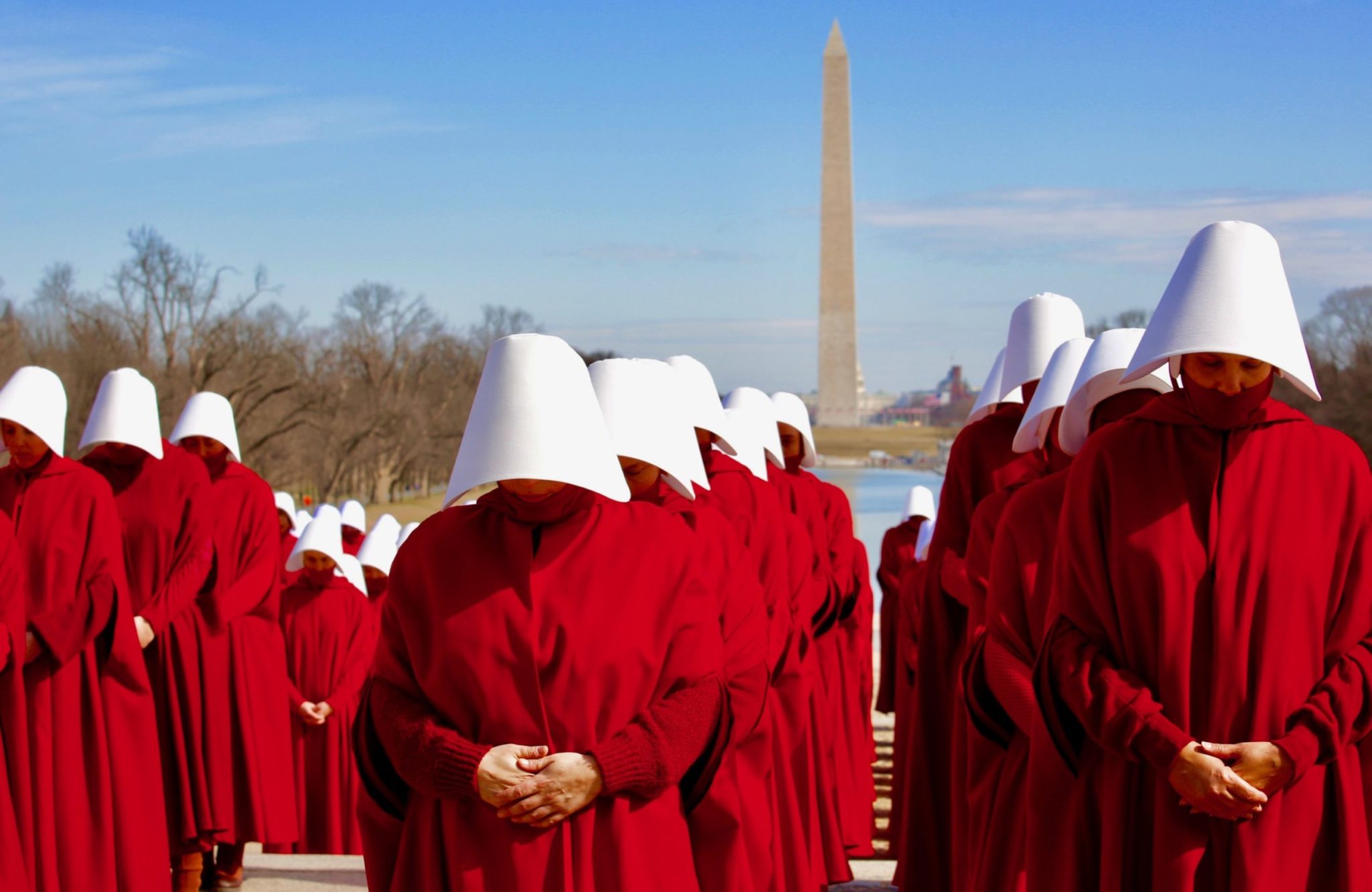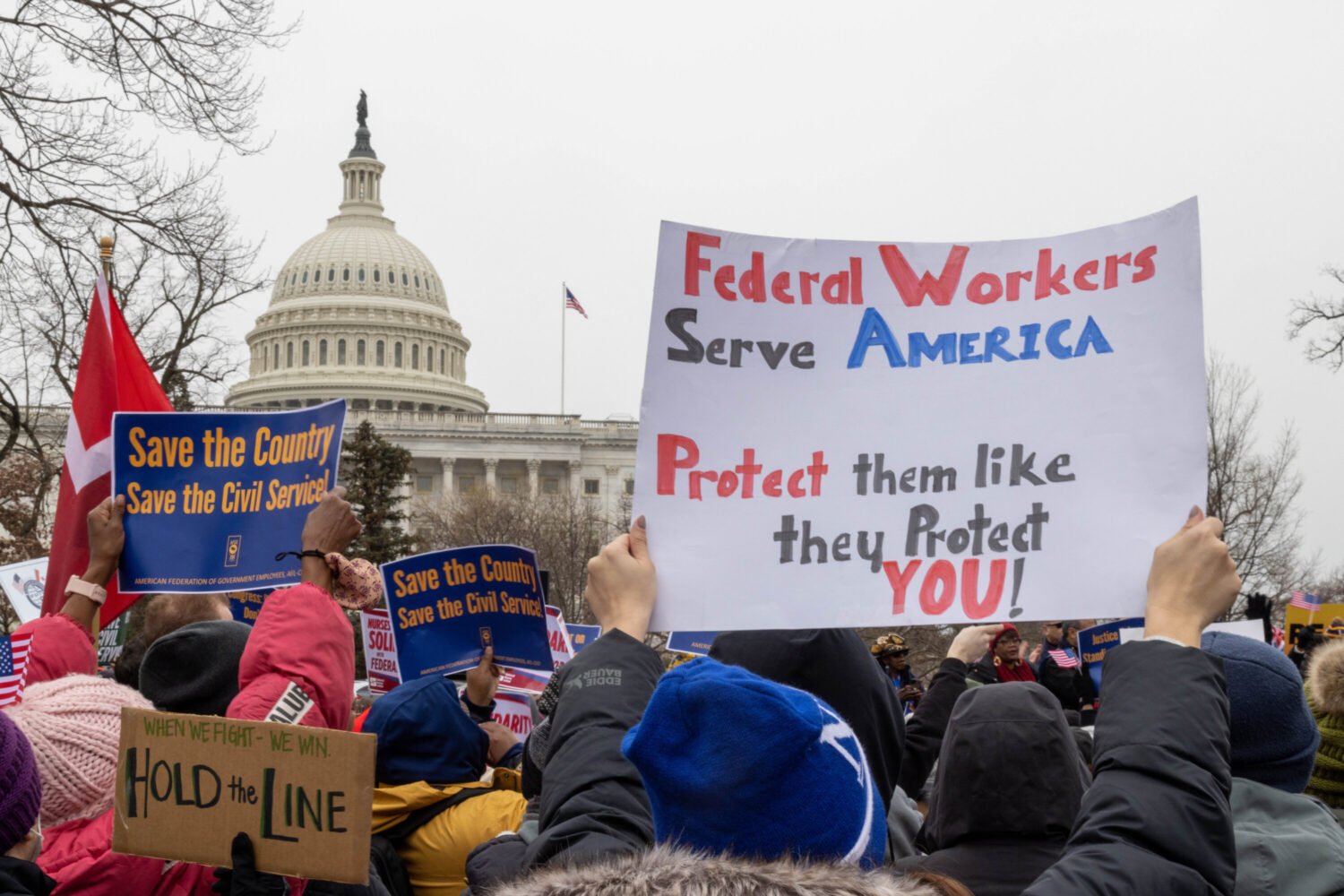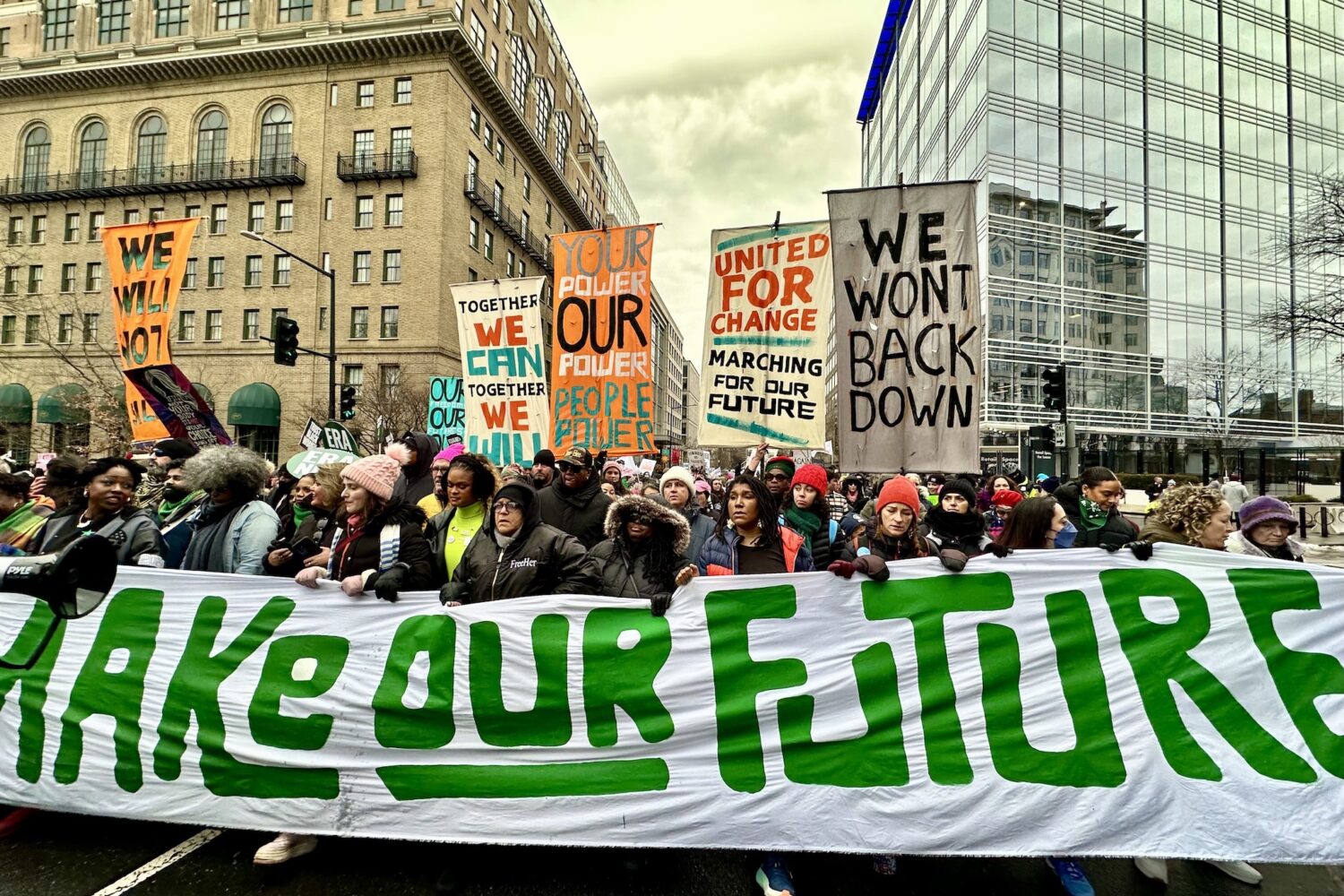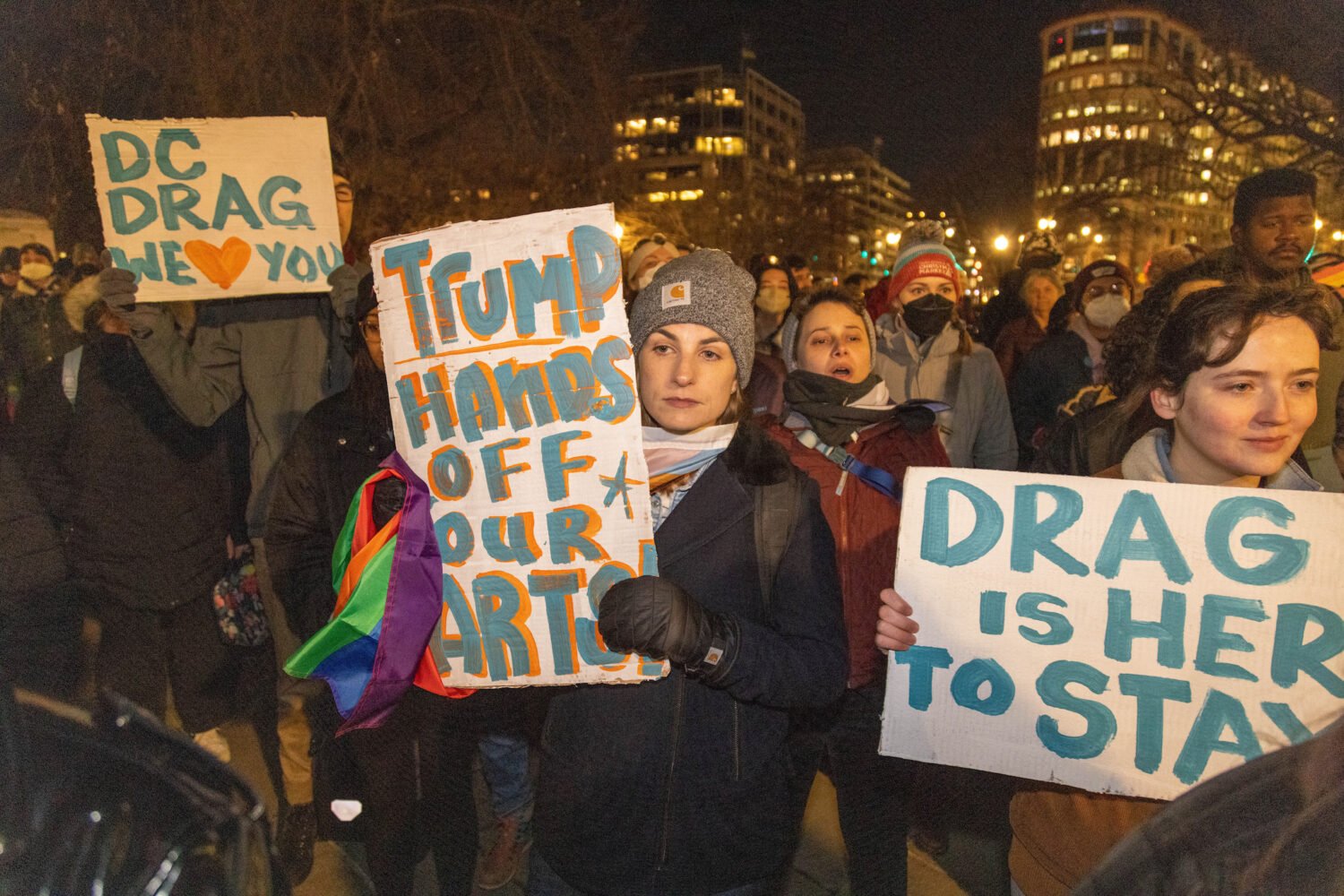This Saturday, the Women’s March will return to Washington to rally in support of reproductive rights. The annual event is known for its powerful visual imagery and messaging, such as the use of knitted pink, cat-eared “pussyhats” and snarky protest signs.
But there is a new rule for protesters: leave the coat-hanger imagery and “Handmaid’s Tale” outfits at home.
Both images have been powerful protest symbols over the year, evoking the dystopian future from the jarring Hulu show and the specter of a return to pre-Roe illegal abortions, respectively.
But march organizers say the symbols serve to exclude people. The Women’s March website says that coat-hangers “reinforce the right wing talking points that self-managed abortions are dangerous, scary and harmful.” They also said that “Handmaid’s Tale” imagery characterizes the lack of women’s reproductive freedom as a “dystopian past or future” and ignores the fact that “Black women, undocumented women, incarcerated women, poor women and disabled women have always had their reproduction freedom controlled in this country.”
The Handmaids Army DC, a group of reproductive rights activists who are known for donning the TV show’s signature red robes and white caps at protests, is not too happy about the new rule. However, the group still plans to honor the wishes of the march organizers. “At the request of the organizers of the Women’s March, we will not be joining their events in costume [on October 2],” the Handmaids Army said in a press statement Monday. “We respect their right to shape the message of the events they organize.”
The activists also defended the use of “Handmaids Tale” outfits, saying that the costumes demonstrate the “erasure of identity that occurs when reproductive freedoms are limited,” as well as, offer the “protection of anonymity” to protesters who are at risk of being doxxed and threatened.


















